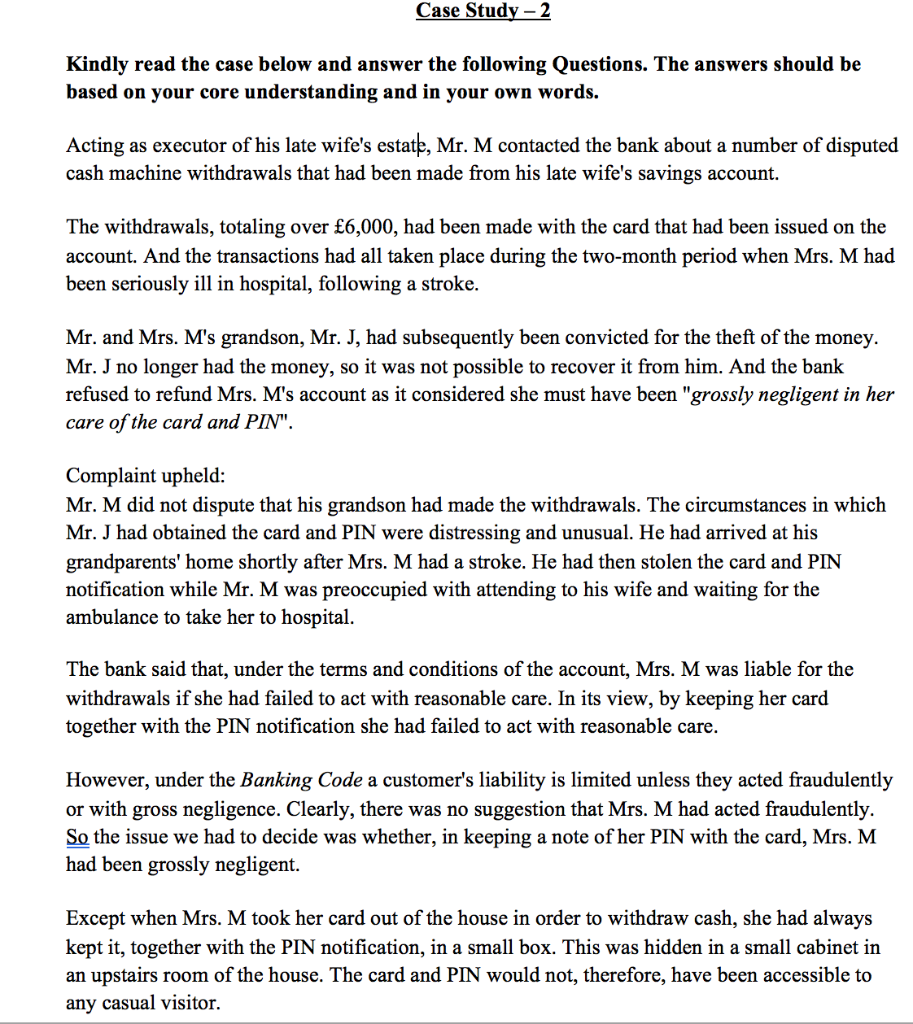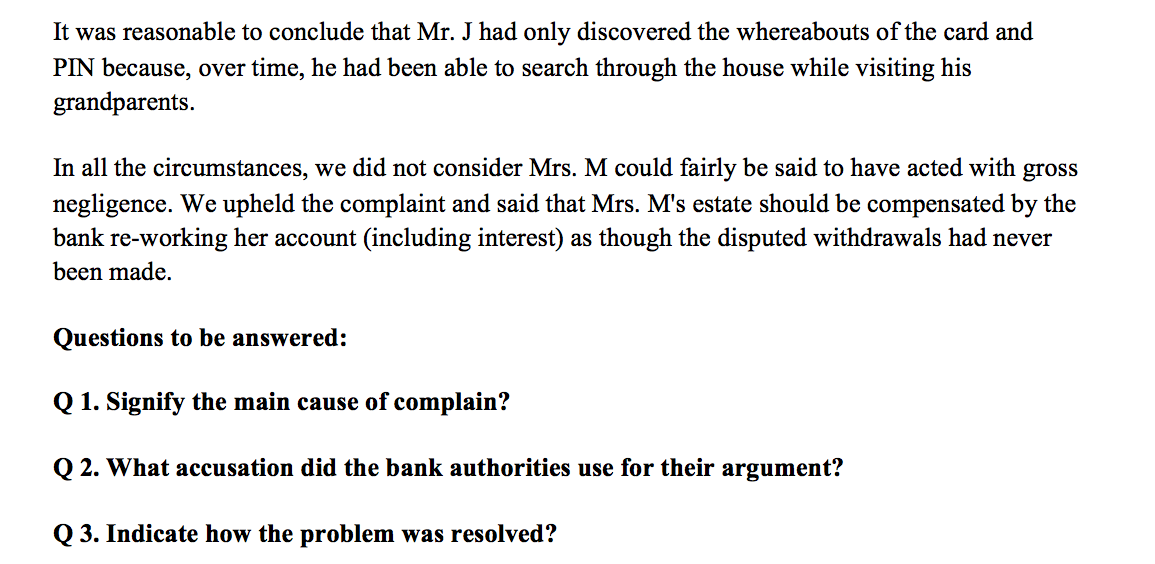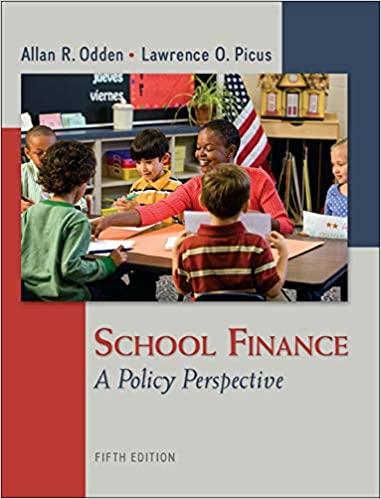

Case Study - 2 Kindly read the case below and answer the following Questions. The answers should be based on your core understanding and in your own words. Acting as executor of his late wife's estate, Mr. M contacted the bank about a number of disputed cash machine withdrawals that had been made from his late wife's savings account. The withdrawals, totaling over 6,000, had been made with the card that had been issued on the account. And the transactions had all taken place during the two-month period when Mrs. M had been seriously ill in hospital, following a stroke. Mr. and Mrs. M's grandson, Mr. J, had subsequently been convicted for the theft of the money. Mr. J no longer had the money, so it was not possible to recover it from him. And the bank refused to refund Mrs. M's account as it considered she must have been "grossly negligent in her care of the card and PIN". Complaint upheld: Mr. M did not dispute that his grandson had made the withdrawals. The circumstances in which Mr. J had obtained the card and PIN were distressing and unusual. He had arrived at his grandparents' home shortly after Mrs. M had a stroke. He had then stolen the card and PIN notification while Mr. M was preoccupied with attending to his wife and waiting for the ambulance to take her to hospital. The bank said that, under the terms and conditions of the account, Mrs. M was liable for the withdrawals if she had failed to act with reasonable care. In its view, by keeping her card together with the PIN notification she had failed to act with reasonable care. However, under the Banking Code a customer's liability is limited unless they acted fraudulently or with gross negligence. Clearly, there was no suggestion that Mrs. M had acted fraudulently. So the issue we had to decide was whether, in keeping a note of her PIN with the card, Mrs. M had been grossly negligent. Except when Mrs. M took her card out of the house in order to withdraw cash, she had always kept it, together with the PIN notification, in a small box. This was hidden in a small cabinet in an upstairs room of the house. The card and PIN would not, therefore, have been accessible to any casual visitor. It was reasonable to conclude that Mr. J had only discovered the whereabouts of the card and PIN because, over time, he had been able to search through the house while visiting his grandparents. In all the circumstances, we did not consider Mrs. M could fairly be said to have acted with gross negligence. We upheld the complaint and said that Mrs. M's estate should be compensated by the bank re-working her account (including interest) as though the disputed withdrawals had never been made. Questions to be answered: Q 1. Signify the main cause of complain? Q2. What accusation did the bank authorities use for their argument? Q3. Indicate how the problem was resolved








